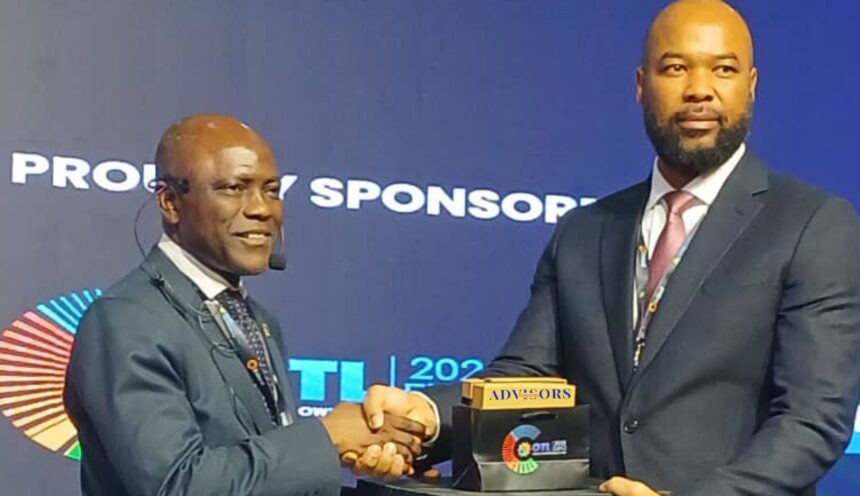…says Nigeria’s high interest rates to oil companies are driven by inflation, not banking policy
Oredola Adeola
Olusegun Alebiosu, Managing Director and Chief Executive Officer of First Bank of Nigeria Limited, has advocated for the reintroduction of a development financing framework with concessionary waivers for players in the oil and gas sector, a measure he described as critical for national growth and the protection of indigenous investors.
He therefore emphasized that Nigeria’s prevailing high interest rates are a reflection of the country’s inflationary environment, not a deliberate policy by banks to stifle growth.
Alebiosu made this known during a panel session at the just-concluded OTL Africa Downstream Energy Week 2025 in Lagos, where he spoke on access to finance by oil and gas companies in Nigeria.
“There’s no country in the world without a development financing framework that allows concessionary waivers for domestic investors,” he said.
“Nigeria is heading back to that system once inflation is reduced to single digits, hopefully by next year. That will open access to sustainable financing for local industries.”
According to him, once inflation begins to ease, interest rates will naturally trend downward.
“Everyone talks about high interest rates currently at about 34 percent, but that’s not entirely true.
“What we are experiencing is a result of inflation, which has declined from 20.12 percent recorded in August 2025 to 18.02 percent in September 2025,” he said.
“The key is to do everything possible to bring inflation down. As it drops, interest rates will fall. We have seen this happen in the past when inflation was lower.”
Alebiosu explained that banks are not unduly benefitting from the current rate environment, noting that most of the costs are simply passed through to sustain operations under existing regulatory and macroeconomic pressures.
“The Central Bank of Nigeria (CBN) does not pay interest on deposits held by commercial banks, as these are reserve deposits used for liquidity management and monetary policy purposes.
“When the CBN releases funds into the market at a policy rate of around 10 percent, commercial banks incur additional costs such as the AMCON levy, NDIC premium, staff salaries, and overhead expenses.
“These cumulative costs raise the effective cost of funds, resulting in higher lending rates than the CBN’s base policy rate.
“Whatever is perceived as the lending rate is therefore a reflection of these passed-through operational and regulatory costs,” he stated.
Addressing concerns that foreign investors access cheaper loans from abroad to invest in Nigeria while indigenous investors do not enjoy similar support locally, Alebiosu explained that external investors also face currency risks similar to domestic players, especially in repatriating profits amid foreign exchange volatility and inflationary pressures.
“Investors in Europe will face the same currency risks that local investors are dealing with. That’s why domestic investors are even more critical at this point,” he said.
However, Alebiosu cautioned local investors against misusing such opportunities, recalling how some previously diverted or mismanaged concessionary funds.
“I can only appeal to domestic investors not to abuse these opportunities when they come.
“In the past, when such windows opened, many indulged in round-tripping, living large, and flying private jets,” he remarked.
“Foreign investors don’t live extravagant lives or misuse borrowed funds.
“Our local investors must show discipline with borrowed money and avoid excesses until their obligations are fully settled.”
The First Bank CEO also stressed the importance of stabilizing Nigeria’s refining sector to strengthen the naira and improve foreign exchange liquidity.
“We still refine abroad and then export insurance products to Europe — but once local refining stabilizes, we’ll have the currency strength to level the market,” he explained.
“If we stop importing now, we’ll risk killing the refineries before they even stabilize. This is part of what is called ‘covering the market’ — ensuring balance before full transition.”
Alebiosu commended the government’s decision to impose a 15 percent import duty on petrol and diesel, describing it as a necessary step to protect local refining.
“If we fail to protect local refineries, they will collapse, and the economy will weaken,” he warned.
He urged Nigerians to support local production and patronize the Dangote Refinery, stressing that buying from local producers is essential to protecting the value of the naira.
“We must protect our interests in the market. We must buy from local producers to protect the value of the naira,” he said.
Alebiosu reaffirmed First Bank’s commitment to supporting credible local businesses, adding that Nigeria’s long-term economic stability depends on responsible domestic investment and effective inflation management.





